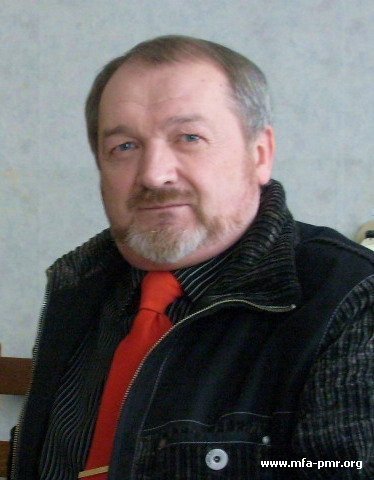The worsening situation in the Security Zone threatened to put into question success of long-standing efforts of international partners of Pridnestrovie aimed at resumption of the work of the Permanent Conference on Political Issues in the Framework of the Pridnestrovien Settlement Negotiation Process. The fact that during the meeting in Odessa convincing arguments of the President of the PMR were heard by the Head of the Moldovan Government deserves high assessment and creates prerequisites for confidence building. Constructive position of the Moldovan side was marked during final press-release, and then confirmed in the course of the joint briefing of the President of the PMR, Moldova's Prime-Minister and head of Ukraine's foreign political office. Statements by the Head of the Moldovan Government are considered in Tiraspol to be an important signal in the context of the process of creating climate of trust between the sides and continuation of a constructive dialogue at international platforms.
Nikolai Babilunga: GESTURE THAT SOUNDS ANEW
I have no special euphoria regarding meeting in Odessa. It seems to me that it was held as yet in the context of those paradigms that we have been observing over the past decade. Meetings, at the highest level including, led to particularly nothing, and everything remained at the same place. Besides, internal political situation in Moldova also gives us no particular grounds for optimism.
Yet, the very recognition by Prime-Minister of Moldova of the fact that transformation of the current format of the peacekeeping forces should not be discussed at this point can already be interpreted as a step, or rather a gesture that sounds anew in the policy of a contemporary Moldova. Before this, and even today, nowadays, Moldovan representatives continue to appear with, shout and in every possible way pull through their slogans saying there should be no forces on the Dniester. We see that they find support in some structures in Kiev as well, not to mention Romania and other parties acting as observers of this conflict. Therefore, this new note that appeared in the mouth of Filat instills certain optimism, gives some bright hope anyhow.
I am not going to explain what the reason is. Perhaps, it is a small victory of our diplomacy. Perhaps, more or less rational powers are appearing in the ruling class of Moldova that begin to look at the conflict not from the point of view of people who don't want to know anything and only clang all bells in mass media and in squares because they are paid for this, but who see that it is one of the steps absolutely necessary for further peaceful normal co-existence of Moldova and Pridnestrovie. And one should start not with taking the peacekeepers away and then waiting for another provocation and resumption of military actions – on the contrary, peacekeepers should remain at their places; they are of no harm to anyone there. We would like to believe that more or less reasonable politicians appear in Moldova.
One cannot exclude also the fact that Moldova's western sponsors – the European Union and the USA – now realize, while their headache is in Syria, and it is unknown what will be in Iran, it is absolutely unnecessary for them to create hotbeds of tension here, in the south-east of Europe. If a conflict suddenly breaks out here, no one knows what will be the end of it. May be, it will be the same as in Georgia in 2008. The West absolutely does not need this. It's better for the Russian peacekeepers to be here, and status-quo to be preserved, and then it will be possible to monitor developments.
There can be other reasons for softening of Kishinev's position. So far we see that Filat designated some gesture in a right direction. To leave alone the peacekeeping operation and to fix upon policy of small steps what President Shevchuk was talking about – this is the most reasonable what can be in our situation, I think.
But we don not see that entire political class in Moldova backs him up. I am afraid that we will see a different position of liberals and communists; we will see criticism of Filat's viewpoint. So far Filat's words following the results of Odessa meeting remain just a phrase that nevertheless gives us hope.








